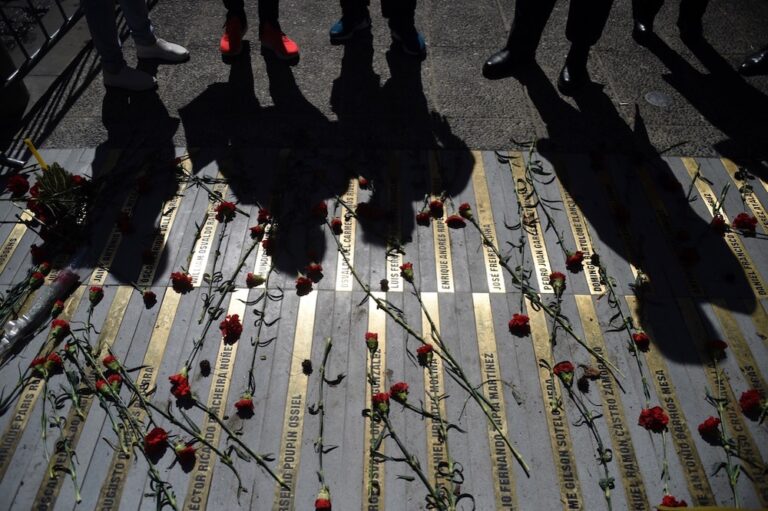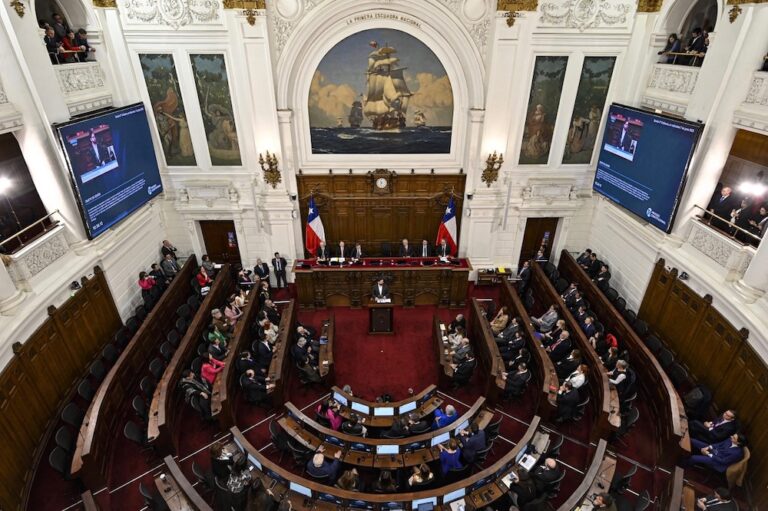(RSF/IFEX) – The following is a 24 November 1998 RSF press release on the occasion of the British House of Lords’ pending decision on the immunity status of General Augusto Pinochet: Press Release Chile While the House of Lords is to rule Wednesday, 25 November, on the validity of General Pinochet’s diplomatic immunity – a […]
(RSF/IFEX) – The following is a 24 November 1998 RSF press release on the
occasion of the British House of Lords’ pending decision on the immunity
status of General Augusto Pinochet:
Press Release
Chile
While the House of Lords is to rule Wednesday, 25 November, on the validity
of General Pinochet’s diplomatic immunity – a ruling which will determine
whether or not the former head of state is tried – Reporters sans frontières
recalls that among the three thousand dead or disappeared recorded between
1973 and 1990 are some forty journalists. Among them are Carlos Berger
Guralnik and José Humberto Carrasco Tapia.
Carlos Berger Guralnik was among the first victims of the organizers of the
coup d’état. Director of the Chuquicamata radio station El Loa, he was
arrested on 12 September 1973, and tried and sentenced to sixty days in
prison for having refused to apply the military regime’s law suspending
programmes as of 11 September. His wife learned of his death by firing squad
mere days before he was scheduled for release. The case was closed further
to the amnesty law passed by General Pinochet’s government on 3 June 1986.
José Humberto Carrasco Tapia, former leader of the Revolutionary Left
Movement (Movimiento de Izquierda Revolucionaria), was, in 1986,
international editor of “Análisis” magazine and correspondent for the
Mexican newspaper “Uno más uno”. He was assassinated with three other
opposition figures by an armed group on 8 September 1986. The operation was
allegedly organized in retaliation for a failed attempt on General
Pinochet’s life. Officially opened in early October 1986, the inquiry was
suspended for a ten-year period by the Supreme Court. The family’s lawyer
continues to believe today that the suspects has ties with the National
Information Centre (Centrale nationale de l’Information, CNI). If this were
to be the case, they would benefit from legal arrangements which prevent a
civil justice inquiry of military garrisons.


